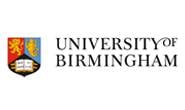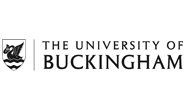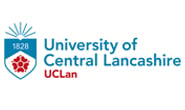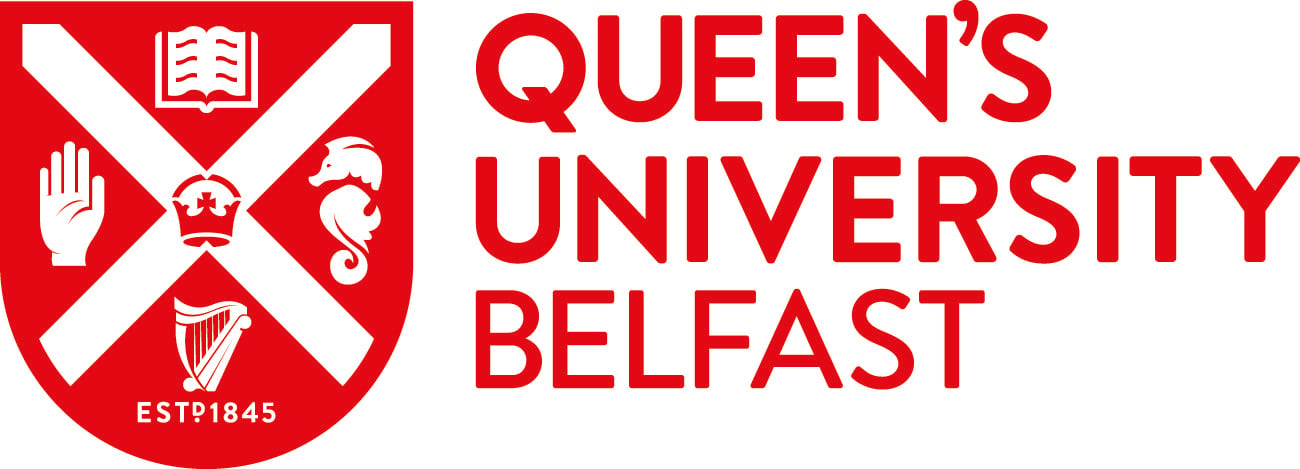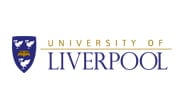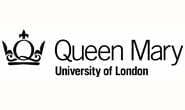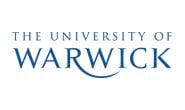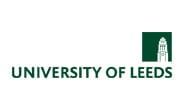
Programme(s) Available
University of Birmingham, England
The University of Birmingham (informally Birmingham University) is a public research university in Birmingham, England. It received its royal charter in 1900 as a successor to Queen's College, Birmingham (founded in 1825 as the Birmingham School of Medicine and Surgery), and Mason Science College (established in 1875 by Sir Josiah Mason), making it the first English civic or 'red brick' university to receive its own royal charter, and the first English unitary university. It is a founding member of both the Russell Group of British research universities and the international network of research universities, Universitas 21.
University of Buckingham, England
University of Buckingham is unique. It is the only independent university in the UK with a Royal Charter, and probably has the smallest number of students. The University campus is well known for being one of the most attractive locations in the region. Each student mixes with over 100 other different nationalities and so being at University of Buckingham is just like being in a mini global village. These contacts, acquaintances and friendships, carry on long after life at University of Buckingham is over.
University of Central Lancashire, England
The University of Central Lancashire is the international, multi-campus University tracing its roots back to 1828 and leading the way in modern learning today. It is one of the UK’s largest universities with a staff and student community approaching 38,000. Its employment-focused course portfolio with over 350 undergraduate programmes, nearly 200+ postgraduate courses and rich array of CPD courses means that the university offers you the skills and experience that industry needs.
University of South Wales, Wales
One of the top ten campus universities in the UK by student number, the University attracts a cosmopolitan mix of students from 122 countries and all backgrounds. The University of South Wales is one of Britain’s most exciting new universities and a major player in higher education.
University of Southampton, England
The University of Southampton is one of the top 10 research-led universities in the UK and has achieved consistently high scores for its teaching and learning activities. Southampton offers first-rate opportunities and facilities for study and research, and a stimulating working environment. Southampton works closely with business and industry and has a strong enterprise agenda. The University of Southampton currently has nearly 20,000 students and 5,000 staff based across several campuses in Southampton and Winchester.
Queens University of Belfast, Northern Ireland
For more than 150 years, Queens has combined innovation and excellence in teaching and research with its role of serving the local community. Today, Queens is a top 20 United Kingdom University for teaching quality and research power and the premier research university in Ireland. It is also first for teaching quality and third for research among the 15 most popular universities for students from Northern Ireland. Student numbers have multiplied more than 100 times since Queens first opened its doors in 1849 with just 195 students. It is now one of the larger universities in the United Kingdom or Ireland, with a full-time and part-time undergraduate and postgraduate population of over 22,000. More than ninety-nine per cent of its students come from state schools, compared with a national average of 86 per cent, making it one of the most socially inclusive research-led universities in the United Kingdom.
University of Nottingham, England
The University of Nottingham is a research university based in Nottingham, United Kingdom, with further campuses in Ningbo, China and Kuala Lumpur, Malaysia. Nottingham University is consistently ranked as one of the top ten universities in the country over the past 15 years in national and international league tables, and is a member of the Sutton Trust 13 list of ‘elite’ Universities. With more than 49,000 applications for 5,500 places in 2011, Nottingham is the third most popular university in the UK, and has been described by The Times as “the nearest Britain has to a truly global university” and “a prime alternative to Oxbridge”.
University of Manchester, England
The University of Manchester has its origins in Owens College, which was established in 1851. The College was granted a Royal Charter in April 1880 as the Victoria University, a federal institution which established colleges in Leeds and Liverpool. These colleges were granted their independence in 1903 becoming the Universities of Leeds and Liverpool respectively, and creating the Victoria University of Manchester. The Faculty of Medicine, Dentistry, Nursing and Pharmacy is one of the largest in Europe, set in the heart of the thriving city of Manchester and known for over 200 years for its innovative teaching and extensive research. Although centred around the University, teaching and research is spread over a wide area of Manchester with links to Manchester Royal Infirmary, St Marys, Hope, Wythenshawe, Christie, North Manchester General, Stepping Hill and Tameside General Hospitals, Preston Royal Hospital, Chorley Hospital, North Staffordshire, Booth Hall and Royal Manchester Childrens Hospitals and local community NHS.
University of Liverpool, England
The University of Liverpool was one of the first civic universities, founded in 1881 with the establishment of University College Liverpool. Liverpool is renowned for the high proportion of its teaching and research that relates to the professions, including Accountancy, Architecture, Dentistry, Engineering, Law, Medicine, Planning and Veterinary Science. This distinctiveness is combined with considerable strengths in every principal area of study in the humanities, sciences and social sciences. Research is vital to the university, keeping staff at the cutting edge of knowledge and students are constantly informed of new developments. Liverpool is associated with no less than 8 Nobel Prize winners, including Sir Ronald Ross (1902), who discovered that mosquitoes spread malaria, and Professor R R Porter (1972), for his work on the structure of antibodies.
Queen Mary, University of London, England
Queen Mary University of London is a world-leading research-intensive university with over 25,000 students representing more than 160 nationalities. Our partnerships around the world are essential in helping us deliver teaching and research with an international dimension and impact. A member of the prestigious Russell Group, we work across the humanities and social sciences, medicine and dentistry, and science and engineering, with inspirational teaching directly informed by our research. In the most recent exercise that rated research in the UK, we were ranked 5th in the country for the proportion of research outputs that were world-leading or internationally excellent. We offer more than 240 degree programmes and our reputation for excellent teaching was rewarded with a silver in the 2017 Teaching Excellence Framework (TEF) awards. Queen Mary’s history dates back to 1785, with the foundation of the London Hospital Medical College. Our history also encompasses the establishment of the People’s Palace in 1887, which brought accessible education, culture and recreation to the East End of London. We also have roots in Westfield College, one of the first colleges to provide higher education to women.

Programme(s) Available
University of Strathclyde, Scotland
There are programmes available with the University of Strathclyde in Pharmacy, Psychology, Biomedical Science and Forensic Biology. The University of Strathclyde was founded in 1796 as ‘the place of useful learning’ and is committed to the advancement of society through the pursuit of excellence in research, education and knowledge exchange. Strathclyde is Scotland’s third largest University with over 15,000 students from more than 100 countries who are attracted by our excellent academic reputation and stimulating study environment. The University is recognized as a centre of teaching excellence and a leading international technological University. The Psychology department at Strathclyde is known for outstanding research and teaching with internationally recognised researchers from developmental and educational psychology, brain and cognition, health psychology and behaviour change, traffic and transport psychology, and applied social psychology. The courses in Biomedical Sciences at Strathclyde provide an excellent foundation in cell and molecular bioscience with a specific focus on Immunology, Microbiology, Pharmacology and Biochemistry. They provide a high-level, scientifically-based education. Teaching material is kept up-to-date via the strong industrial and research links of our academic staff and this ensures students are provided with useful and relevant experience.
University of Warwick, England
The University of Warwick was given approval by the government in 1961 and received its Royal Charter of Incorporation in 1965. It is situated on a large 700 acre campus which straddles the boundary between the City of Coventry and the County of Warwickshire. The idea for a university in Coventry was mooted shortly after the conclusion of the Second World War but it was a bold and imaginative partnership of the City and the County which brought the University into being on a 400 acre site jointly granted by the two authorities. Since then, the University has incorporated the former Coventry College of Education in 1978 and has extended its land holdings by the purchase of adjoining farm land.
University of Glasgow, Scotland
The University of Glasgow was founded in 1451. Today, Glasgow is a member of the Russell Group of major research-led universities and a founder member of Universitas 21, an international grouping of universities dedicated to setting world-wide standards for higher education. For Dentistry Transfer Students
- Students must also meet English language proficiency requirements (IELTS 7 in all bands).
University of Leeds, England
Founded in 1904, the University of Leeds has played a leading part in the development of modern higher education in UK. As well as continually strengthening core academic disciplines, Leeds has also developed distinctive areas of specialist expertise in rarer subjects such as Colour Chemistry and Fire Science. Leeds is now among the top ten universities for research in the UK and is internationally acknowledged as a centre of excellence in a wide range of academic and professional disciplines. Its broad research and skills base and superb facilities attract interest from major multinationals and small local businesses alike. Many of its research initiatives cross traditional subject boundaries and Leeds currently promotes projects through 58 inter-disciplinary centres and seven research schools.
University of Edinburgh, Scotland
The University of Edinburgh was founded in 1583, making it one of Scotland’s ancient universities. The Faculty of Medicine was established in 1726. As a result of a period of active curriculum development in medicine, beginning in 1996, Edinburgh can truly claim to provide a modern, high quality medical educational experience. Clinical education is delivered in partnership with the National Health Service; the University and the NHS work together to maintain the strong tradition of excellent clinical teaching in Edinburgh and to provide quality patient care to the population of Scotland. In addition, the College of Medicine and Veterinary Medicine hosts teams who carry out world-class research. The teams working in hospital-based clinical subjects and veterinary science received the very highest ratings in the national research assessment exercise in 2001. Students have the opportunity to work with these teams on project work and to make links and develop interests which are often pursued after graduation.
University of Dundee, Scotland
The University of Dundee became an independent university in 1967 after a 70 years relationship with the University of St Andrews – now a key partner. The Sunday Times University Guide named the University of Dundee Scottish University of the Year 2004. Dundee is growing fast in both size and reputation. Broadly-based, it has performed extremely well in both teaching and research assessment exercises, has spawned a range of spin-out companies to exploit its research and has a model wider-access programme. Distance learning – especially in medical related areas – is burgeoning right across the world and now accounts for one in six students. An ambitious project to explore the creation of an international virtual medical school involving all five Scottish medical schools is led by Dundee. Dundee received the prestigious Queen’s Anniversary Prize for higher education institutions in 1998, has three of the 20 most cited scientists in the UK – the only Scottish university included – and three “biomedical” knights.
Health Sciences University, England
AECC University College has changed its name to Health Sciences University (HSU). This represents a significant milestone in institutional journey as they proudly carry this new prestigious title. The mission to create a healthier society through education, research and clinical care is as relevant and pertinent today as it was when we started our journey 59 years ago as the first chiropractic training provider in Europe. They currently offer around 30 accredited health sciences courses and apprenticeships across 10 distinct professions and a growing portfolio of accredited CPD and master classes to the registered and unregistered health and care workforce. In addition, they have developed a large suite of clinical services and have a growing multi-professional research environment and expertise. There will be further diversification of their portfolio following the merger with the University College of Osteopathy from August 2024, and subsequently the launch of a new Health Business School and a range of health professions apprenticeships.
University of Aberdeen, Scotland
The University of Aberdeen, founded in 1495, is Scotland’s third oldest and the fifth oldest in the UK. Aberdeen is an international university built on serving one of the most dynamic regions of Europe. With over 13,000 students, and over 3000 staff, Aberdeen is at the forefront of teaching and research in medicine, the humanities and sciences. Aberdeen has invested heavily in medical research, where time and again University staff have demonstrated their skills as world leaders in their field. The custom-built Institute of Medical Sciences, completed in 2002, was designed to provide state-of-the-art facilities for medical researchers and their students.



